#Erich Korngold
Text
youtube
Erich Korngold (1897-1957) from "Sechs einfache Lieder" Op. 9 I
Nr.1 Schneeglöckchen (Snowdrop; text by J. Eichendorff) II Nr.3 Das Ständchen (Serenade; text by J. Eichendorff) III Nr.4 Liebesbriefchen (Love Letters; text by E. Honold) IV Nr.6 Sommer (Summer, text by S. Trebitsch)
Barbara Hendricks, soprano & The Philadelphia Orchestra (Erez Ofer, premier violon) Conducted by Franz Welser-Möst
3 notes
·
View notes
Text
Propaganda:
Saint-Saëns:
This is what I’m playing for my conservatory audition in December. If you want a girl to achieve her dream of becoming a violinist against her parents’ will, vote for Saint-Saens.
Korngold:
Just listen to the beginning of the first movement, it's so grand. And as you go on it gets super funky (like that section that's entirely tritones. Slay)
#classical music#violin#violin concerto#violin concerto bracket#saint-saëns#camille saint-saëns#korngold#erich korngold#// folks I may be biased on this one. just a little. almost like one of these is my favorite vc of all time
5 notes
·
View notes
Text
youtube
Erich Korngold: Mein Sehnen, mein Wähnen (from Die tote Stadt) (1920). Lyrics by Paul Schott (pseudonym of Julius Korngold).
Taehan Kim, baritone
La Monnaie Symphony Orchestra
Alain Altinoglu, conductor
Im Tanze gewann ich,
verlor ich mein Glück.
Im Tanze am Rhein,
bei Mondenschein,
gestand mirs aus Blau-aug
ein inniger Blick.
1 note
·
View note
Text
Erich Korngold
Happy birthday, Erich Wolfgang Korngold! Listening to this collection I am certain John Williams heard many of these during his formative years.
youtube
0 notes
Text
For the Love of Korngold

View On WordPress
0 notes
Photo
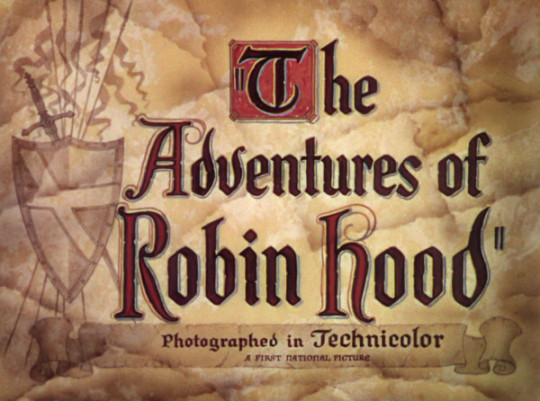
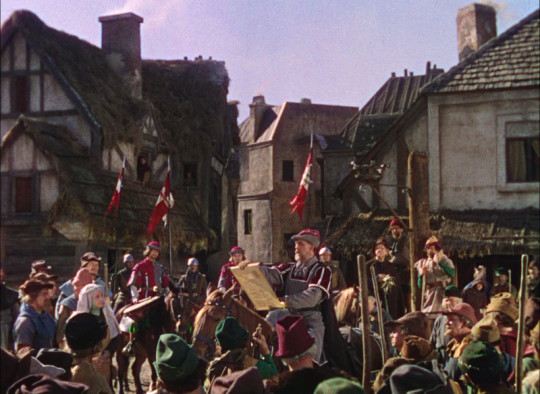
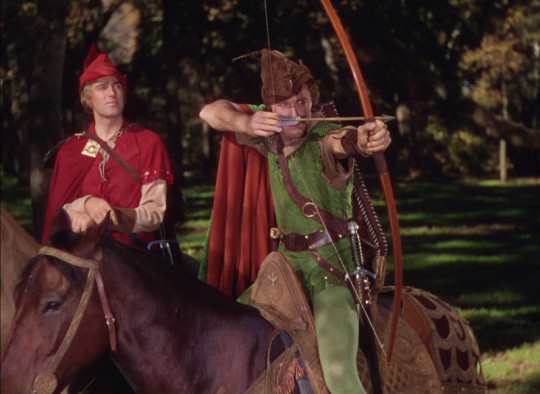
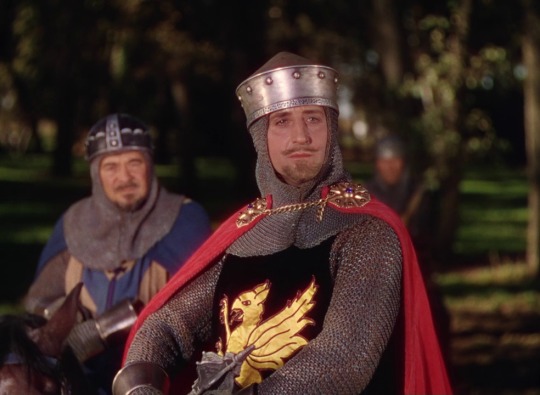
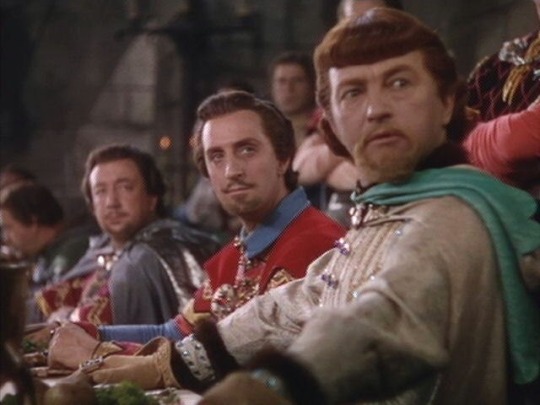
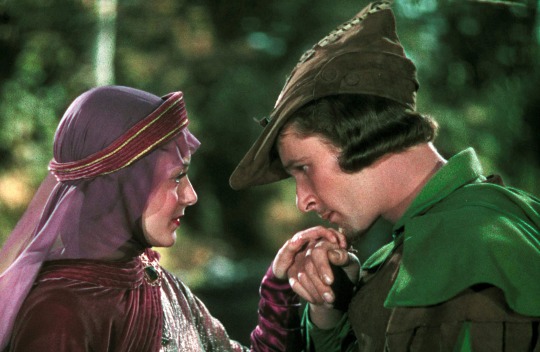
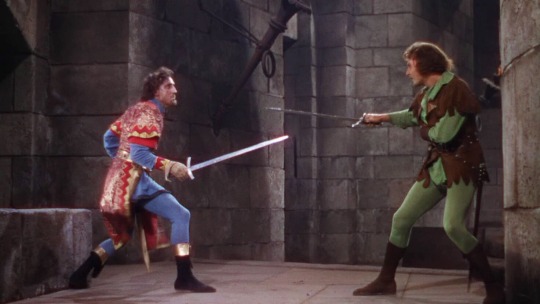

“Why, you speak treason!”
“Fluently.”
When it comes to Robin Hood, it doesn’t get any Robin Hood-ier than this. Swashbuckling legend Errol Flynn is Robin Hood as much as Olivia de Havilland is Maid Marian in what might just be the most entertaining film of the 1930s in Michael Curtiz’s The Adventures of Robin Hood (1938). Every single Robin Hood film release since stands in this version’s shadow.
Action-packed without being overly silly or too violent, witty as any of the screwball comedies released in the ‘30s and ‘40s, costumed and designed with an eye-popping color palette, and enjoyable enough for anyone who has never seen a film this old, Michael Curtiz’s and William Keighley's The Adventures of Robin Hood continues to delight as it approaches its eighty-fifth anniversary of its release. Flamboyant performances from Claude Rains and Basil Rathbone add to the fun! Perhaps its most innovative aspect is the rollicking score by Erich Wolfgang Korngold - Korngold (as much a composer for film as he was for contemporary classical music) was one of the first to use Wagnerian leitmotifs in association with characters and ideas in his scores, which would go on to influence almost every film composer working since.
At that year’s Oscars, The Adventures of Robin Hood - the most expensive movie yet produced by Warner Bros. at that time - was nominated for four Academy Awards, winning three: Best Art Direction (Carl Jules Weyl), Film Editing (Ralph Dawson), and Original Score for Korngold. Its only loss was for Best Picture (You Can’t Take it with You).
#The Adventures of Robin Hood#Robin Hood#Michael Curtiz#Errol Flynn#Olivia de Havilland#Claude Rains#Basil Rathbone#Una O'Connor#Erich Wolfgang Korngold#Carl Jules Weyl#Ralph Dawson#Oscars#31 Days of Oscar
51 notes
·
View notes
Text
theme from old movie... wait a DANG sec...
youtube
🤔

Bio well worth reading. Seriously.

(Heh. a little Superman in King's Row as well)
Again, to be serious for a moment, 1940s and early 50s filmgoers had no idea how lucky they were to have one of the century's greatest composers of ballet, opera, and orchestral music applying his genius to films like Errol Flynn's Robin Hood.
7 notes
·
View notes
Video
youtube
Erich Wolfgang Korngold, Die tote Stadt (Acto II, Lied de Pierrot: «Mein Sehnen, mein Wähnen»), op. 12.
Horst Stein, director
Hermann Prey, bajo-barítono
8 notes
·
View notes
Text
and now, a stupid opera crossover:
lady mac from verdi’s the scottish opera: “dalla fossa chi morì non surse ancor!” (“no one who has died has ever come back from the grave!”)
paul from korngold’s die tote stadt, thoroughly losing his mind, running in wildly: YEAH HUHHHHHHHHHHH
#opera tag#opera#excuse this shitpost i literally thought of it in the shower#the scottish opera#die tote stadt#the dead city#verdi#giuseppe verdi#korngold#erich wolfgang korngold#conflicts between opera characters#on death
4 notes
·
View notes
Text
4 notes
·
View notes
Text
youtube
Erich Wolfgang Korngold (1897-1957) - Der Ring des Polykrates, Op. 7: Er kommt! Vergang'nes dringt ins Heut! ·
Beate Bilandzija
Orchestra: Deutsches Symphonie-Orchester Berlin, Conductor: Klauspeter Seibel
3 notes
·
View notes
Text
youtube
happy main title tuesday here's the main title theme from the sea hawk
#sorry if this is unviewable i could NOT find this version as a non-auto-generated video :(#but this is the version i got from the university library years ago#the sea hawk#music#erich wolfgang korngold
3 notes
·
View notes
Text
I’m going to see a performance of the Korngold Violin Concerto in a couple of weeks! And Price’s Symphony 3! I’ve never seen these live before and I’m so excited!
5 notes
·
View notes
Text
The Slovak Philharmonic Orchestra Bratislava
The Slovak Philharmonic Orchestra Bratislava

View On WordPress
#Aichi Central Symphony Orchestra in Nagoya Japan#Aldo Ceccato Conductor#Alma Mahler#Art Nouveau Architecture#Athens Festival#Baroque Revival and Neo-Baroque Architecture#Berliner Festtage#Bohdan Warchal Violinist and Conductor#Bratislava Concert Association#Bratislava Music Festival#Bratislava Radio#Brucknerfest Linz#Bystrík Režucha Conductor#Carinthisher Sommer#Cellist Tatsuki Sasanuma."#Daniel Raiskin Chief Conductor#Egon Krák#Egon Krák Les anges du ciel hommage à Josquin Desprez#Erich Wolfgang Korngold Composer#Erich Wolfgang Korngold Violin Concerto in D major Op. 35#Ewald Danel Artistic Leader Slovak Chamber Orchestra#Festival de Strasbourg#Grammy Award Winner Sting#Gustav Mahler Composer#Gustav Mahler Symphony No. 5#Hemsing Eldbjørg#Hviezdoslav Square#Hviezdoslav Square Bratislava#Josquin Desprez#Jozef Chabroň Choirmaster
1 note
·
View note
Text
die tote Stadt act 2 was made for the bisexual theatre kids who like to party after rehearsals

Bayerische Staatsoper, München, 2019 — from left to right: theatre company members Juliette (Corinna Scheurle, mezzo soprano), Marietta (Marlis Petersen, soprano), Lucienne (Mirjam Mesak, mezzo soprano), and Victorin (Manuel Günther, tenor) are having a night out. From the Erich Korngold opera die tote Stadt.
#erich wolfgang korngold#die tote stadt#opera#marlis petersen#manuel günther#mirjam mesak#corinna scheurle
0 notes
Text
March 6, 2024
By Chris Willman
(Variety) — Harrison Ford can’t escape the two-and-a-half-minute fanfare that John Williams composed for his most famous cinematic hero, Indiana Jones. “As I often remind John, his music follows me everywhere I go — literally,” Ford says. “When I had my last colonoscopy, they were playing it on the operating room speakers.”
Creating those big, bold, brassy musical moments has become Williams’ trademark over his seven-decade career. Without his symphonic genius, some of the most indelible images in movie history — from E.T.’s flight across the moon to the ravenous shark zeroing in on an unsuspecting swimmer — would have lacked their singular power.
This year, Williams is resetting the record books again with his Academy Award nomination for best original score for “Indiana Jones and the Dial of Destiny.” It’s his 54th nomination, which is the most ever for someone not named Walt Disney, and thus the biggest tally for any living person — and any nonproducer, period.
“People ask about a legacy,” Williams says as he sits in the Amblin screening room on the Universal lot, adjacent to his bungalow office. “If I could be remembered as someone who did his job well and remembered as a good solid musician, I would rest very happily.”
... Over the decades, he was aware of how the great film composers before him had a reputation for being cranky at best or tortured at worst. “Alex North, David Raksin, Jerry Goldsmith and others — brilliant, beautiful talents. All unhappy.” Most had barely suppressed ambitions to write concert music or symphonies instead of scoring movies. They believed that they were, in a sense, slumming it and laboring for directors who they described as “imperious and obstructive.”
“I thought, ‘Well, that’s not a complaint that I want to have to live with.’ So I went about it not to try to compete with Igor Stravinsky or the great classical composers, but to learn from the process of doing — the best school of all.”
Williams also notes that times have changed. Today, orchestras are happy to play film music. “If you went to the New York Philharmonic 40 years ago, they would be condescending about playing anything from Hollywood,” he says. “So I’m lucky that I’m living in a different period.”
Maybe luck has something to do with it, but there’s a case to be made that Williams created the era in which concert treatments of film music and live-to-screen presentations are beloved hallmarks of symphony seasons. He did that by writing themes the whole world wants to hear. He also did it by being a friendly ambassador for orchestras, fronting the Boston Pops or the L.A. Phil. Those who know Williams well say the audiences who have greeted him as America’s Composer are not mistaken in their impressions of him as a genial genius.
***
Imo, perhaps the most underreported part of John Williams' legacy? Helping classic film scores that he and his predecessors composed earn their place in the classical music canon (it helps immensely that Williams commands the deepest respect from professional musicians, soloists and rank-and-file orchestra members alike, around the world).
#John Williams#film score#Steven Spielberg#Erich Wolfgang Korngold#Bernard Herrmann#Harrison Ford#Fiddler on the Roof#Jaws#Family Plot#Star Wars#Close Encounters of the Third Kind#Indiana Jones#Raiders of the Lost Ark#Dial of Destiny#Home Alone#Schindler's List#Harry Potter#The Fabelmans#Oscars#31 Days of Oscar
0 notes